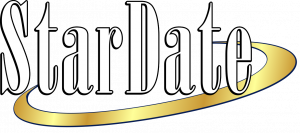Jul 18 2013
Northrop Grumman, a leading global security company and NASA’s partner building the James Webb Space Telescope, will become official sponsor of the nationally syndicated “StarDate” radio program starting Sept. 1. “StarDate” is produced by The University of Texas at Austin’s McDonald Observatory.

The sponsorship brings together the builder of some of NASA’s greatest space missions with the longest running national radio science feature in the United States, produced by one of the country’s top-ranked academic astronomy programs.
“We are delighted that Northrop Grumman is partnering with McDonald Observatory as official sponsor of ‘StarDate’,” said observatory director Dr. David L. Lambert. “This support will provide a major boost for our programs designed to strengthen science education in Texas and throughout the country.”
“StarDate” is a daily two-minute radio program heard by 2 million listeners on more than 300 radio stations across the United States. Programs tell listeners what to look for in the night sky and explain astronomical science, history and skylore, while keeping listeners up to date on the latest research findings and space missions. “StarDate Online” draws more than 4 million annual unique visitors with continually updated skywatching tips, graphics and a plethora of information from black holes to extrasolar planets to the fate of the universe.
Northrop Grumman has partnered with NASA for decades, including on the Chandra X-ray Observatory, the Lunar Crater Observation and Sensing Satellite (LCROSS) and currently the James Webb Space Telescope (JWST), successor to the Hubble Space Telescope.
“The public has been transfixed by the repeated wonders that Hubble has beamed down to Earth,” said University of Texas at Austin astronomer Steven Finkelstein. “JWST will simultaneously peer to the distant reaches of the universe, while also directly imaging planets around other stars in our galaxy. These two topics are intense areas of research at The University of Texas, and we expect to be at the forefront of these major discoveries.”
“StarDate” will continue to cover those discoveries and much more.
Founded in 1939, The University of Texas at Austin's McDonald Observatory hosts multiple telescopes undertaking a variety of astronomical research under the darkest night skies of any professional observatory in the continental United States. McDonald is home to one of the world's largest telescopes, the consortium-run 9.2-meter Hobby-Eberly Telescope, and is pioneering the next generation of astronomical research as a partner in the Giant Magellan Telescope. The observatory is an international leader in astronomy education and outreach, with “StarDate” radio as its flagship outreach vehicle.
For more information, contact: Rebecca Johnson, McDonald Observatory, College of Natural Sciences, 512 475 6763; Sandra Preston, McDonald Observatory, College of Natural Sciences, 512-475-6765; Joel Barna, McDonald Observatory, College of Natural Sciences, 512-471-6335.